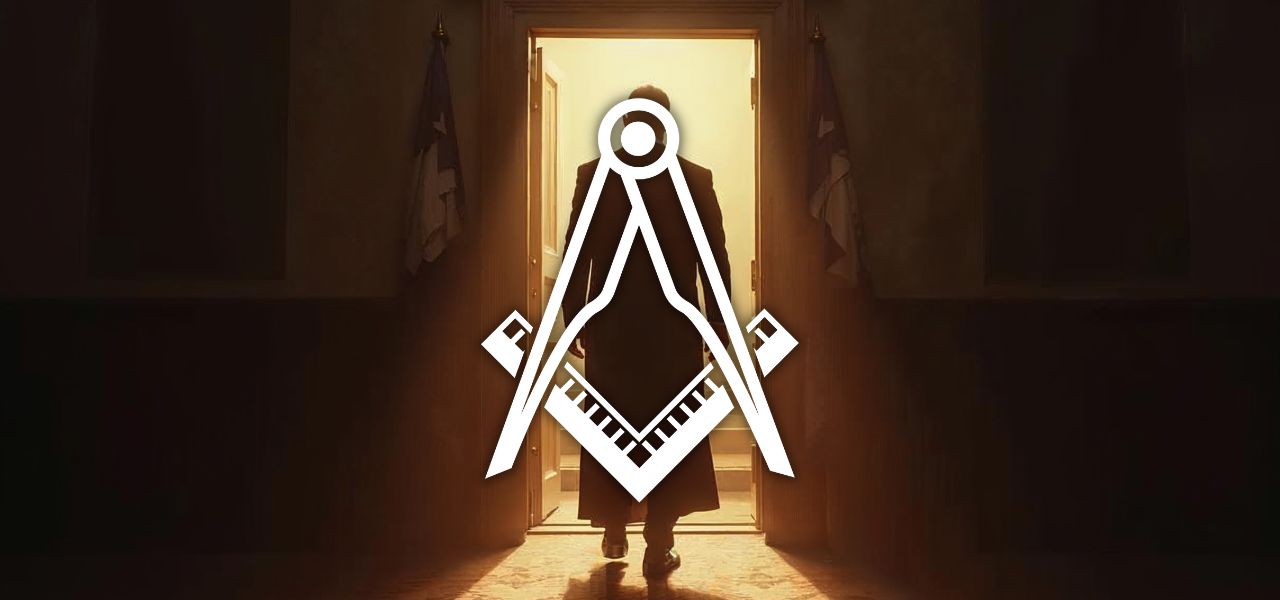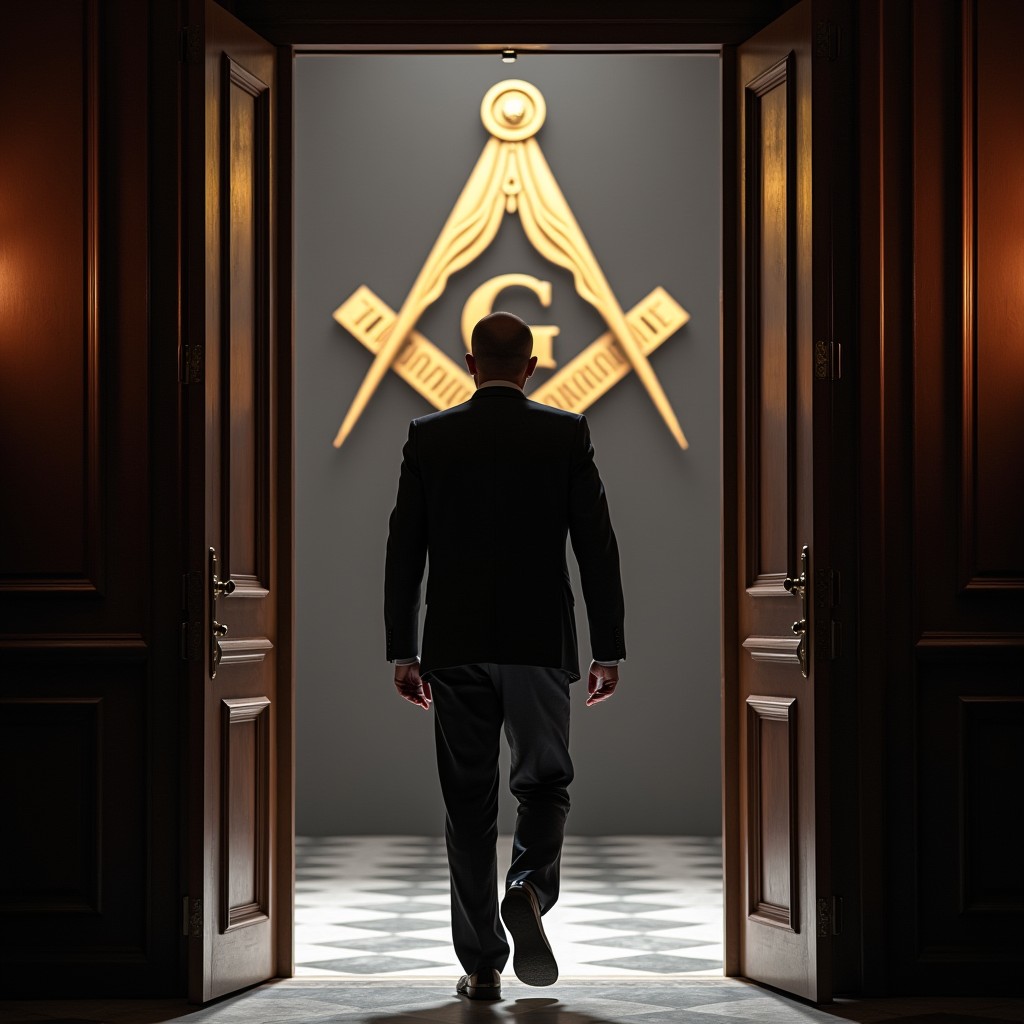Freemasonry stands at a crossroads.
Despite its rich heritage and the timeless values it upholds, many Lodges struggle to attract and retain members in our rapidly changing world.
Younger generations, who often have more choices for personal development and community involvement, now expect effective, inspiring leadership wherever they devote their time.
This expectation places a spotlight on the critical role Lodge officers play in creating an environment that engages existing members while appealing to those on the outside looking in.
Strong leadership in Lodges can bridge the gap between traditional and modern expectations.
By focusing on effective communication, a clear vision, and empowering members to take on meaningful roles, Lodges can remain vibrant and relevant.
This article explores why capable leadership is essential in Masonry and how embracing these principles can revitalize Lodges, ensuring that they continue to be a powerful force for good in the community and a home for good men who seek both camaraderie and personal growth.

Masonry is facing a challenge today…
Many Lodges are struggling with membership losses.
Despite a growing population and more leisure time, the number of new members is dropping.
There seems to be a disconnection between what Masonry offers and what potential members are looking for.
When someone stops attending Lodge meetings or fails to pay dues, it raises questions.
It’s essential to consider why good men are leaving the Craft. Part of the issue might stem from the leadership inside the Lodges. Many times, the officers are not equipped with the skills needed to manage and inspire their members.
Today’s young men are more educated and expect organizations to operate effectively. They want to be part of groups led by individuals who know how to lead well.
If a Lodge is poorly run, these young men are less likely to join, even if they are interested in Masonic principles.
Consider how businesses operate…
Even if a brand-new store has a fantastic location and great products, it can fail if the owner lacks leadership skills. Many Masonic Lodges are in a similar situation.
They have good intentions but struggle because they don’t have leaders who can bring out the best in their members.
It’s crucial for a Lodge to have officers who truly understand leadership.
A Lodge with strong leaders will see active participation from its members, which can lead to a vibrant community that’s attractive to newcomers.
When leaders engage the members and create a welcoming environment, better retention rates follow.
Key Leadership Qualities:
- Communication: Effective leaders can express ideas clearly and listen to feedback.
- Vision: They should have a picture of what they want the Lodge to achieve.
- Commitment: A good leader shows dedication to the Lodge and its members.
- Empowerment: They encourage others to take on responsibilities and contribute.
Many Lodges depend heavily on a small group of members for ritual duties. This can be limiting.
A successful Lodge will find ways to involve more members in various activities.
A Master should see that everyone has a meaningful role, whether it’s in ritual work or committee participation.
Committee Assignments
Here’s a look at how committee work can benefit a Lodge:
| Committee Type | Suggested Chairman Skills |
|---|---|
| Ritual and Lecturing | Skilled ritualist |
| Dining Room | Enjoys cooking and serving |
| Publicity | Good writing skills |
By assigning members to committees tailored to their skills, a Lodge can foster active participation. Notably, this strategy helps uncover those with natural leadership abilities. Engaging members in various tasks can turn quiet Brethren into future leaders.
An effective Master will appoint committees upon taking office and check on their progress throughout the year. By doing so, everyone has a job, and members start to cultivate their leadership potential.
The Importance of Rituals
Rituals play a vital role in Masonic meetings, and a Lodge must perform its rituals properly to fulfill its mission.
When a Master can ensure sound ritual practice, they can then turn their attention to other areas of service and programming. This balance is essential for a thriving Lodge.
In a world filled with distractions, many young men prioritize their time.
They are looking for opportunities that offer mentorship, community service, and personal growth.
If a Lodge can show that it offers these valuable experiences while running efficiently, attracting new members becomes much easier.
Community Engagement
A Lodge shouldn’t be an insular group. Engaging with the surrounding community also helps attract new members.
By participating in community events, supporting local charities, or collaborating with civic clubs, a Lodge can make a positive impact.
Demonstrating its commitment to bettering the community can appeal to potential Masons, who appreciate organizations that give back.
Supporting Future Leaders
To build a solid foundation for future leadership in Masonry, programs targeting young people can be beneficial.
Sponsoring youth groups related to Freemasonry can spark interest in Masonic values at an early age.
Activities for young men and women can educate them about the principles of Masonry while providing a platform for mentorship.
What’s Next for Masonry?

Masonry needs to ask tough questions about its leadership choices.
Are current leaders equipped to inspire and manage?
Are they drawing on the talents of all members or just a select few?
By placing emphasis on leadership training and mentorship, Lodges can prepare their members for officer positions.
If Masonic Lodges set their sights on bringing out the best in members, it could redefine the future of the fraternity.
The goal is to attract good men, emphasizing that their contributions are essential to a thriving Lodge.
Initiatives designed to boost member participation can lead to increased enthusiasm for Lodge activities.
Everyone has skills to share, and when those skills are acknowledged, members feel valued.
This recognition can foster a positive atmosphere where both old and new members feel they belong.
4 Strategies for “Recruitment”
A thriving Lodge can implement several strategies to boost recruitment:
- Open Houses: Host events where non-members can learn about Masonry.
- Mentorship Programs: Pair new members with seasoned Masons to guide them.
- Family Events: Include families in activities to create a sense of community.
- Social Media Outreach: Use platforms to highlight Lodge’s activities and successes.
These strategies can help create a more inviting atmosphere.
When potential members see the camaraderie, educational opportunities, and community spirit, they may be more inclined to join.
Maintaining Interest
Regular communication, engaging events, and acknowledgment of contributions are vital.
Creating a vibrant schedule that includes fellowship, service, and education can help keep members excited about their involvement.
As the Freemasonry looks ahead, it’s vital to nurture leadership at every level.
The future of the fraternity rests on the shoulders of well-prepared leaders who can guide their Lodges into a new era.
Emphasizing leadership development ensures that Masonry holds its place as a respected organization, continually attracting good men.
By focusing on these areas, Masonic Lodges can work toward cultivating an environment where potential leaders are recognized and valued.
This effort can lead to stronger engagement, increased membership, and a thriving Lodge community.